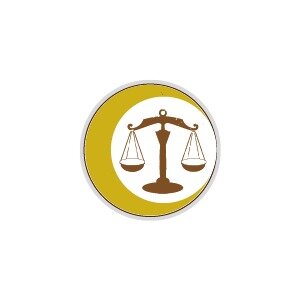Best Water Law Lawyers in Kumasi
Share your needs with us, get contacted by law firms.
Free. Takes 2 min.
List of the best lawyers in Kumasi, Ghana
About Water Law in Kumasi, Ghana
Water Law in Kumasi, Ghana refers to the body of laws, regulations, and policies that govern the ownership, use, management, and protection of water resources within the Kumasi Metropolitan Area. This area, being one of the country's most populous cities, faces significant challenges related to water access, quality, distribution, and environmental sustainability. Water Law encompasses not only government legislation but also local by-laws, customary practices, and international agreements Ghana is party to. The law ensures fair distribution, environmental protection, pollution control, and conflict resolution regarding water usage among residents, businesses, and public entities.
Why You May Need a Lawyer
Consulting a lawyer experienced in Water Law may be necessary for several reasons in Kumasi:
- Disputes over water rights or access, especially among neighbors or communities
- Complications arising from land development projects affecting water resources
- Water pollution issues leading to health or property damage
- Seeking permits or licenses for water extraction or use for commercial purposes
- Allegations of illegal borehole drilling or unlicensed water sales
- Conflicts between traditional land and water rights and government regulations
- Environmental complaints involving streams, rivers, or wetlands
- Problems with water service delivery by local authorities or private providers
- Water supply interruptions or contamination, especially in rental or business contexts
- Negotiating contracts for water provision, construction, or related services
Local Laws Overview
The legal framework around water in Kumasi is shaped by both national and local regulations:
- The Constitution of Ghana recognizes the state as the trustee of the nation’s water resources, emphasizing sustainable use for the benefit of all.
- The Water Resources Commission Act, 1996 (Act 522) establishes the Water Resources Commission (WRC), which regulates water resource use and permits.
- The Ghana Water Company Limited (GWCL) is tasked with the supply of urban water, including Kumasi, and operates under laws such as the Public Utilities Regulatory Commission Act, 1997 (Act 538).
- Drilling and use of boreholes for private or commercial purposes require prior authorization from the WRC.
- The Environmental Protection Agency Act, 1994 (Act 490) regulates environmental impacts and pollution control, including water resources.
- Customary rights are significant, particularly in peri-urban communities, but are subject to national guidelines.
- Kumasi Metropolitan Assembly (KMA) by-laws may introduce water management and sanitation regulations unique to the city.
- International conventions like the United Nations Sustainable Development Goals, to which Ghana is a party, also influence local water policy.
Key aspects include water rights allocation, licensing, pollution control, dispute resolution, water tariffs, and community involvement in water management.
Frequently Asked Questions
What is considered a water resource in Kumasi?
Water resources include surface water (rivers, streams, lakes), groundwater (boreholes, wells), and rainwater, as recognized by national laws.
Can I dig a borehole on my property in Kumasi?
You must apply for a permit from the Water Resources Commission before drilling a borehole for domestic or commercial use, to ensure sustainable water use and avoid legal issues.
Who is responsible for urban water supply in Kumasi?
The Ghana Water Company Limited handles the provision and management of potable water to homes and businesses in Kumasi.
What should I do if my water source is polluted?
Report the pollution to the Environmental Protection Agency or the relevant district office. You may also consult a lawyer to support claims for clean-up or compensation.
What are the consequences of illegal water connection?
Illegal connections can result in prosecution, fines, disconnection, and liability for damages to the public water system.
How can water disputes be resolved?
Disputes are first handled through negotiation or mediation, often at the district office. If unresolved, they can be taken to the Water Resources Commission or civil courts for determination.
Are community wells and streams protected by law?
Yes. The law protects communal water resources, and anyone found polluting or blocking public access can face legal consequences.
How are water tariffs determined?
The Public Utilities Regulatory Commission sets tariffs based on guidelines considering operation costs, sustainability, and affordability.
Is it legal to sell water from private sources?
Selling water from a private borehole or source requires a commercial water use license from the Water Resources Commission, as well as compliance with health and safety regulations.
What rights do tenants have regarding water supply?
Landlords are obligated to provide access to potable water as part of their tenancy agreements. Persistent supply failure may be a breach of contract, warranting legal action or rent abatement.
Additional Resources
- Water Resources Commission (WRC) - Main regulatory body for water resource management and licensing
- Ghana Water Company Limited (GWCL) - For water supply services, billing, and customer complaints
- Environmental Protection Agency (EPA), Kumasi branch - For reporting pollution and obtaining environmental permits
- Kumasi Metropolitan Assembly (KMA) - For local by-laws, sanitation, and water-related municipal services
- Ghana Bar Association - To locate lawyers specializing in environmental and water laws
- Legal Aid Commission - For access to affordable legal advice and representation
- Ministry of Sanitation and Water Resources - For national water policy and information
- Non-governmental organizations such as WaterAid Ghana and World Vision Ghana - For advocacy, education, and community support
Next Steps
If you require legal guidance or face challenges related to Water Law in Kumasi, consider the following steps:
- Document your issue clearly, including dates, parties involved, and any communication or evidence.
- Contact the relevant local authority or regulatory agency, such as the WRC or GWCL, to seek administrative resolution.
- If the matter persists, consult with a qualified lawyer experienced in Water Law to assess your rights and options.
- Consider mediation or negotiation to settle disputes before escalating to formal legal proceedings.
- Utilize available resources such as legal aid services or local NGOs for guidance, especially if cost is a concern.
- Act promptly, as some water-related disputes or claims may be subject to statutory deadlines or require urgent action to prevent further harm.
By seeking timely legal advice and understanding your rights under local Water Law, you can better protect your interests and contribute to the responsible management of Kumasi’s vital water resources.
Lawzana helps you find the best lawyers and law firms in Kumasi through a curated and pre-screened list of qualified legal professionals. Our platform offers rankings and detailed profiles of attorneys and law firms, allowing you to compare based on practice areas, including Water Law, experience, and client feedback.
Each profile includes a description of the firm's areas of practice, client reviews, team members and partners, year of establishment, spoken languages, office locations, contact information, social media presence, and any published articles or resources. Most firms on our platform speak English and are experienced in both local and international legal matters.
Get a quote from top-rated law firms in Kumasi, Ghana — quickly, securely, and without unnecessary hassle.
Disclaimer:
The information provided on this page is for general informational purposes only and does not constitute legal advice. While we strive to ensure the accuracy and relevance of the content, legal information may change over time, and interpretations of the law can vary. You should always consult with a qualified legal professional for advice specific to your situation.
We disclaim all liability for actions taken or not taken based on the content of this page. If you believe any information is incorrect or outdated, please contact us, and we will review and update it where appropriate.










